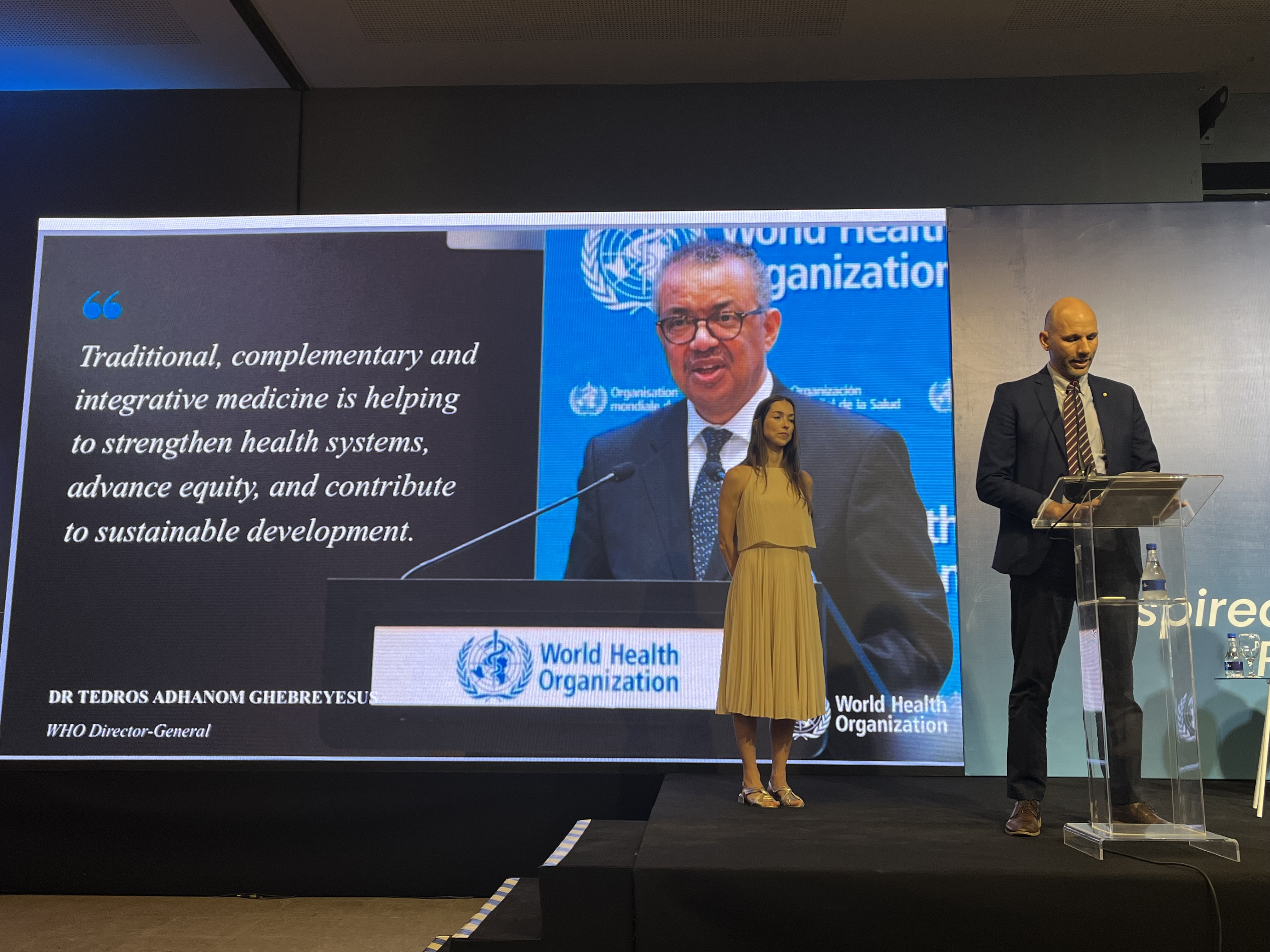
The 3rd World Congress on Traditional, Complementary and Integrative Medicine (TCIM) took place on 15–18 October 2025 in Rio de Janeiro, Brazil. It marked the 20th International Congress on TCIM Research and the 17th European Congress on Integrative Medicine and aligned with the release of the WHO Global Traditional Medicine Strategy 2025–2034, adopted at the Seventy-eighth World Health Assembly in May 2025. The event brought together researchers from across the globe to discuss innovative solutions for strengthening global public health through TCIM.
Statement on behalf of WHO Director-General
The opening session on 15 October featured a statement on behalf of WHO Director-General Dr Tedros Adhanom Ghebreyesus, which underscored the growing role of traditional medicine in improving health equity and resilience. The message highlighted that WHO is supporting this effort through the newly adopted WHO Global Traditional Medicine Strategy 2025–2034 and the WHO Global Traditional Medicine Centre (GTMC), which “works to bridge ancient wisdom and modern science by advancing research, innovation, standards and data”. The statement concluded with an announcement that the upcoming second WHO Global Summit on Traditional Medicine, to be held from 17–19 December 2025 in New Delhi, will introduce new tools to support countries in translating evidence into policy and action.
Dr Shyama Kuruvilla, Director a.i. of the WHO GTMC, shared a pre-recorded video explaining the four objectives of the WHO Global Traditional Medicine Strategy: to strengthen the evidence base, ensure quality and safety through regulation, enable integration into health systems, and foster collaboration and partnerships. Dr Kuruvilla reiterated that GTMC’s mission is to help countries and partners translate this vision into action and impact.
Comprehensive repository for traditional medicine
On 17 October, several WHO representatives joined a key panel discussion on the forthcoming WHO Traditional Medicine Global Library. The panel was chaired by Dr Sangyoung Ahn, WHO Technical Officer, and included Dr João Paulo Souza, Director of the Latin American and Caribbean Center on Health Sciences Information (BIREME), a specialized centre of the Pan American Health Organization/World Health Organization (PAHO/WHO) leading the development of the Library. During the session, Dr Souza explained how the library will “facilitate collaboration, research and implementation of traditional, complementary and integrative policies and practices that are all effective and safe and enable progress toward health.” The library is on course to become the world’s most comprehensive digital knowledge repository for TCIM, integrating over 1.5 million records spanning evidence maps, journal articles, multimedia collections, policies and regulations.
Global trends and challenges in traditional medicine
On 18 October, Dr Sangyoung Ahn delivered a keynote presentation on the WHO Global Traditional Medicine Strategy 2025–2034. Drawing on findings from the Third WHO Global Survey on TCIM, Dr Ahn presented a detailed picture of global trends and challenges that the Strategy aims to address. Around two-thirds of participating Member States estimated that 40–90% of their populations use TCIM in some form. The majority of respondent countries (76%) reported that the main reason people sought TCIM was to manage noncommunicable diseases, with almost 90% of TCIM practitioners operating in the private sector.
Despite its importance in supporting global health, significant challenges remain. Many Member States cited limited research data for traditional medicine and a lack of funding support. Currently, only around 1% of global health research funding is allocated to traditional medicine. The absence of mechanisms to regulate or monitor TCIM practices, providers or products was also a major concern.
Dr Ahn reaffirmed that WHO remains committed to supporting Member States in the implementation and adaptation of the Strategy at the country level, including the design and development of national indicators to monitor progress.
Second WHO Global Summit on Traditional Medicine in December will delve deeper into the science and knowledge shaping traditional medicine, advance implementation of the Global Strategy and include announcements of new pledges, products and innovations.
